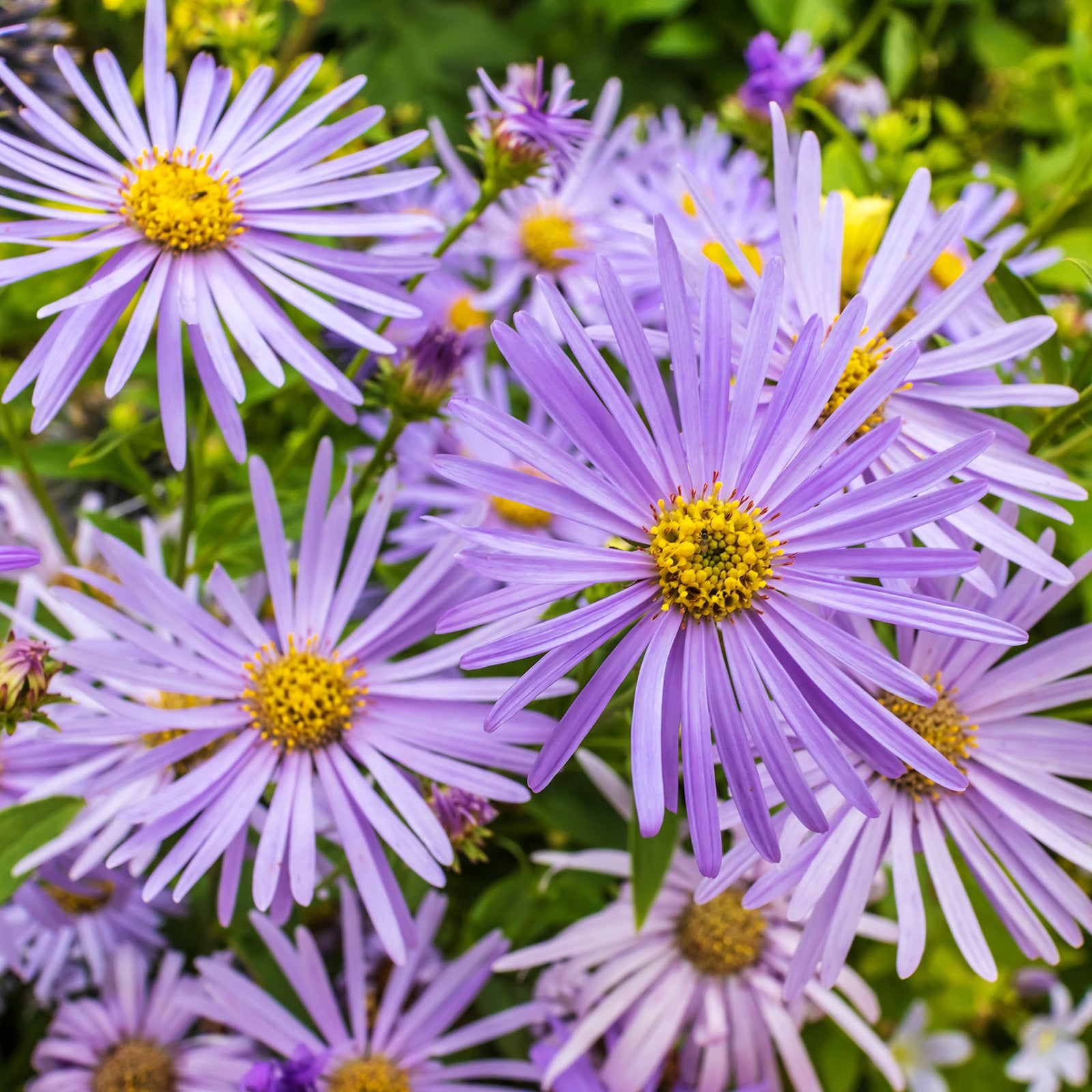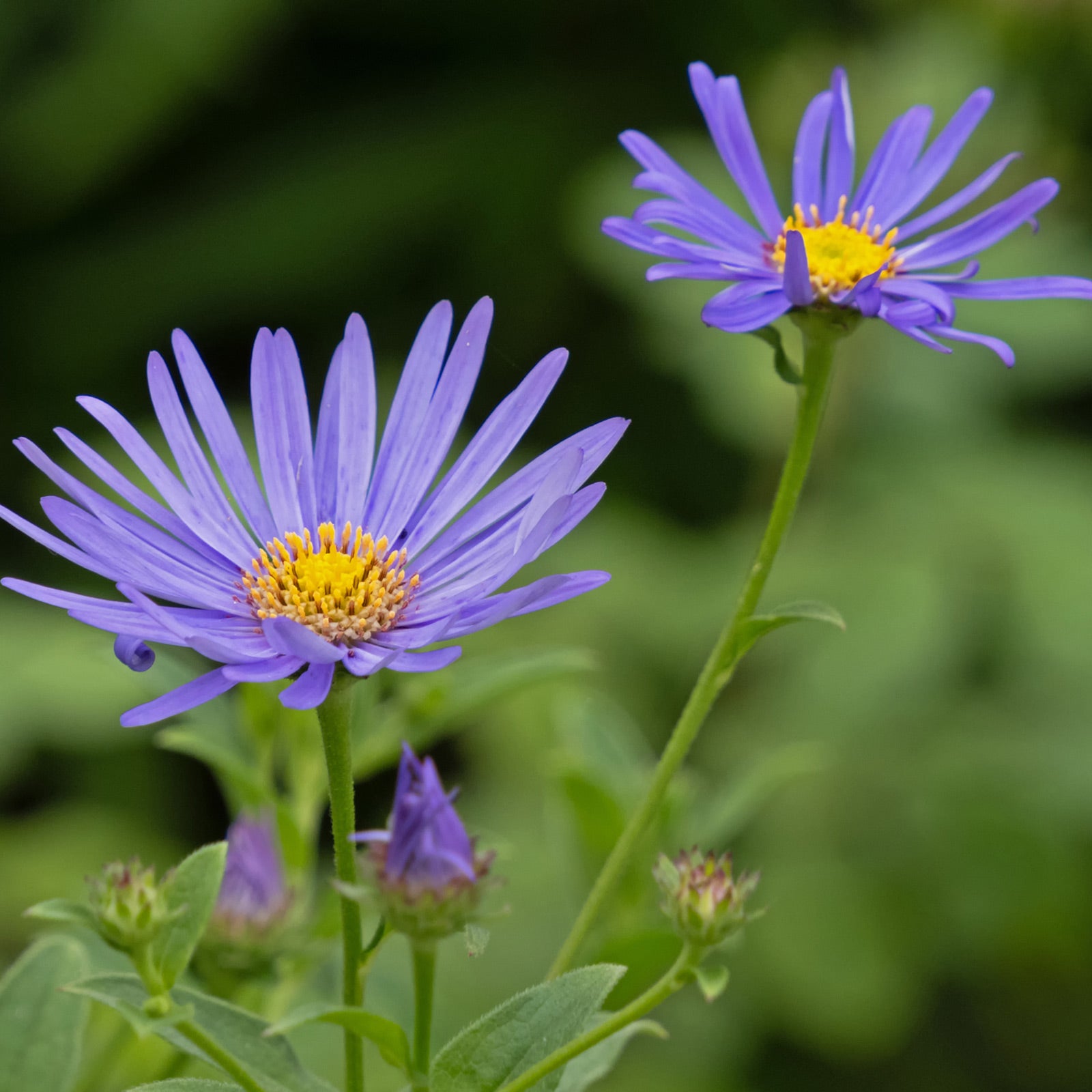

-
Why we like this plant
Aster 'Mönch' is a standout perennial for its long-lasting floral display, pollinator-friendly nature, and resistance to mildew. Its delicate yet vibrant blooms add lightness and movement to borders, while its easy-care nature makes it a reliable choice for both experienced and beginner gardeners.
-
About this plant
Aster × frikartii 'Mönch' is a superb perennial known for its exceptional flowering period and striking lavender-blue blooms. Unlike many asters, it begins flowering in midsummer and continues well into autumn, making it a valuable plant for extended seasonal interest. The large, starry flowers are held on tall, branching stems above narrow, deep green foliage, creating a light and airy effect in borders. This hybrid aster is highly resistant to mildew, a common problem in other varieties, and is a magnet for bees and butterflies. It thrives in full sun and well-drained soil, making it ideal for mixed borders, cottage gardens, and wildlife-friendly planting schemes.
-
Key features
- Lavender-blue, daisy-like flowers with golden centres
- Exceptionally long flowering period (July to October)
- Attracts bees, butterflies, and other pollinators
- Mildew-resistant and easy to grow
- Ideal for cottage gardens and mixed borders
-

Height and
spread -

Growth
habitUpright, bushy, free-branching
-

Moisture
Moist but well-drained; drought-tolerant once established
-

Position in
the GardenMixed borders, cottage gardens, pollinator gardens
Planting guide
- Plant in fertile, well-drained soil
- Position in full sun for best flowering
- Space plants 45–60cm apart for good air circulation
Care tips
- Plant in well-drained soil in full sun
- Deadhead spent flowers to prolong blooming
- Provide support if grown in exposed areas
- Cut back stems in late autumn or early spring
- Divide clumps every few years to maintain vigour
Winter care
- Leave seed heads for winter interest and wildlife
- Apply mulch in autumn to protect roots in colder regions
- Cut back old stems in early spring to encourage new growth











